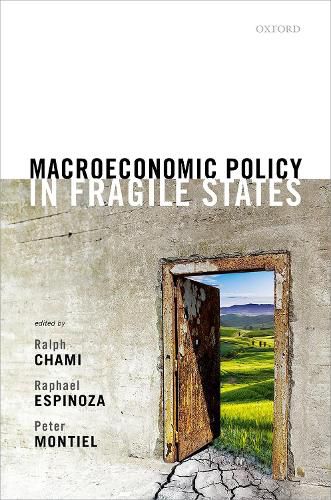Readings Newsletter
Become a Readings Member to make your shopping experience even easier.
Sign in or sign up for free!
You’re not far away from qualifying for FREE standard shipping within Australia
You’ve qualified for FREE standard shipping within Australia
The cart is loading…






Setting macroeconomic policy is especially difficult in fragile states. Political legitimacy concerns are heightened, raising issues such as who the policymakers are, what incentives they face, and how the process of policymaking is likely to work under limited legitimacy and high uncertainty both about the macroeconomic environment as well as policy effectiveness. In addition, fragility expands the range of policy objectives in ways that may constrain the attainment of standard macroeconomic objectives. Specifically, in the context of fragility policymakers also need to focus on measures to mitigate fragility itself - i.e., they need to address issues such as regional and ethnic economic disparities, youth unemployment, and food price inflation. Socio-political developments around the world have thus pushed policymakers to broaden their toolkit to improve the effectiveness of macroeconomic management in the face of these constraints. The chapters in Macroeconomic Policy in Fragile States address these issues, both by giving an analytical context from which policymakers can build to answer the questions they face in fragile situations as well as by providing lessons drawn from empirical analyses and case studies. The first section of the volume discusses the interactions between political economy considerations and macroeconomic policymaking. The second section covers the private sector environment in fragile states. The third section focuses on macroeconomic policy, especially fiscal policy, monetary policy, exchange rate policy, external flows, and aid effectiveness. The last section explains the role of the IMF in fragile states and concludes by presenting case studies from the Middle East and from Sub-Saharan Africa. The contributors to the volume are economists and political scientists from academia as well as policymakers from international organizations and from countries affected by fragility.
$9.00 standard shipping within Australia
FREE standard shipping within Australia for orders over $100.00
Express & International shipping calculated at checkout
Setting macroeconomic policy is especially difficult in fragile states. Political legitimacy concerns are heightened, raising issues such as who the policymakers are, what incentives they face, and how the process of policymaking is likely to work under limited legitimacy and high uncertainty both about the macroeconomic environment as well as policy effectiveness. In addition, fragility expands the range of policy objectives in ways that may constrain the attainment of standard macroeconomic objectives. Specifically, in the context of fragility policymakers also need to focus on measures to mitigate fragility itself - i.e., they need to address issues such as regional and ethnic economic disparities, youth unemployment, and food price inflation. Socio-political developments around the world have thus pushed policymakers to broaden their toolkit to improve the effectiveness of macroeconomic management in the face of these constraints. The chapters in Macroeconomic Policy in Fragile States address these issues, both by giving an analytical context from which policymakers can build to answer the questions they face in fragile situations as well as by providing lessons drawn from empirical analyses and case studies. The first section of the volume discusses the interactions between political economy considerations and macroeconomic policymaking. The second section covers the private sector environment in fragile states. The third section focuses on macroeconomic policy, especially fiscal policy, monetary policy, exchange rate policy, external flows, and aid effectiveness. The last section explains the role of the IMF in fragile states and concludes by presenting case studies from the Middle East and from Sub-Saharan Africa. The contributors to the volume are economists and political scientists from academia as well as policymakers from international organizations and from countries affected by fragility.